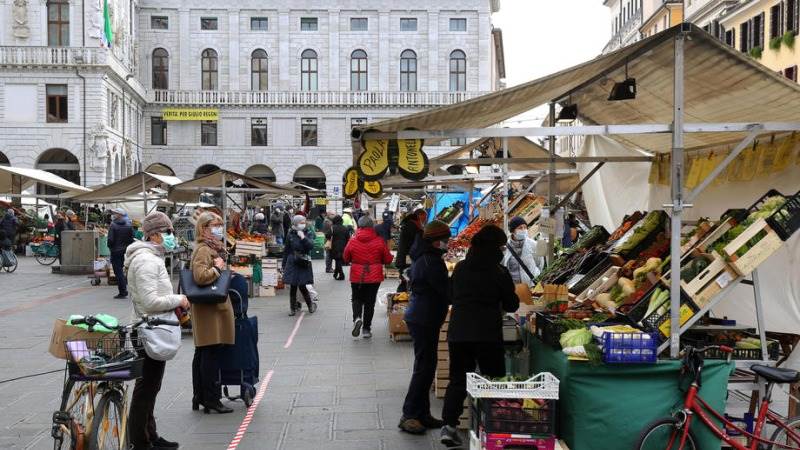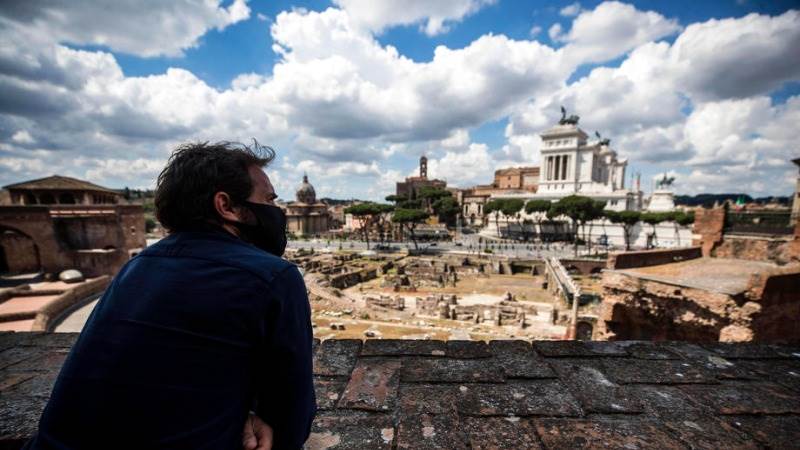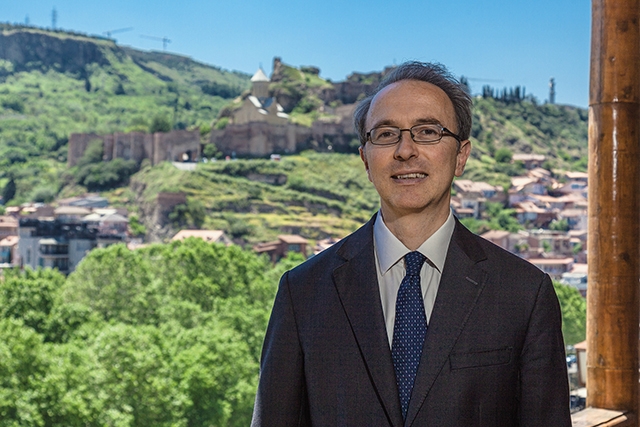Italian Ambassador: Italy Has Strong Commitment to the Idea that Nobody Should Be Left Behind
EXCLUSIVE INTERVIEW
Last Friday, we spoke to the Italian Ambassador to Georgia, Enrico Valvo, as part of the GT LIVE INTERVIEWS – “AMBASSADORS GO LIVE” series. Mr Valvo has been in Georgia since December 2019, and has in the past held positions in Berlin and Moscow. We quizzed him on Italy’s handling of the coronavirus and asked him for his outlook on moving forward post-Covid.
The latest COVID-19 statistics from Italy, which is 301,338 km² and has a population of 60.36 million, are as follows: Italy is 7th on the Worldometer coronavirus list, behind the USA, Brazil, Russia, the UK, Spain, and India. It has 31,710 active corona cases, of which 249 are critical. 34,114 Italian citizens have died, and total cases currently stand at 235,763.
Last week, Italy opened itself to both domestic and European tourists. Tell us about that. When will the borders open for non-EU citizens?
From May 4, we began to revitalize Italy’s social and economic activities, keeping a close eye on the numbers of new cases. For weeks now, coronavirus cases have been decreasing substantially, so that, on June 3, we were able to lift all travel curbs on domestic and inter-European travel, a major milestone on Italy's road to recovery.
There is an emerging consensus among the members of the Schengen space concerning opening up borders to non-EU citizens. My understanding is that the Ministers have agreed to prolong the restrictions for a couple more weeks.

Tell us what steps your country’s government and healthcare system have been taking to fight COVID-19.
The foremost problem was that Italy was the first European country to experience a massive outbreak of the coronavirus infection; this means that we had to discover one after the other measures which were taken a couple of weeks later by most of our partners. In the first phase, we introduced an almost complete lockdown, with the exception of absolutely essential activities. There was a moment when the healthcare system was stretched to full capacity, and I believe the drastic measures that Italy took were indispensable for avoiding the system’s total breakdown.
Tell us about your country's work to develop a vaccine.
There is one Italian company which is working on a vaccine together with a partner British company, and they are preparing to start trials in a couple of months. The Italian government is dedicated to the idea that the vaccine, once developed, should be available to everyone in need. Nobody should be left behind. This is also one of the reasons for strong Italian commitment towards the global alliance for vaccination and immunization.
What is your country doing to support its citizens, especially those who lost their jobs due to the pandemic?
The economic impact caused by the pandemic has been grave for Italy, as well as the partners with whom we are interconnected in terms of the product chain. One main effort has been to avoid massive layoffs by sustaining salaries in the crisis period. The country has also been helping private companies which are facing risks of going bankrupt; in this case, the leverages that have been used include loan and tax exemptions. Another part of the response has been the European response, which we are setting up in the framework of the European Union together with our partners. This relates to very significant steps that are in the making, including the European mechanism to mitigate unemployment risks and the recovery fund.
If you could go back in time, what would you do/recommend be done differently?
As happens in all democratic societies, we have been thinking about what could have been done better or differently. All in all, the strategy was right and the harsh measures were necessary. It is true that these measures have caused substantial social and economic damage, which is far from over. I think it will take time to learn all the necessary lessons. One lesson we all have learned is that we should invest in preparedness in our health systems to be ready for similar pandemics.

How do you see your country in 6 months’/one year’s time?
It’s very hard to make predictions. I couldn’t have imagined the current changes three months ago. Very much will depend on whether we have to tackle second or third waves of the coronavirus pandemic, and a lot will depend on the things we might be able to control more, namely co-ordinated responses with partners.
Many publications, both in the US and Europe, have praised Georgia’s handling of the pandemic. What’s your take on that?
The simple answer is yes, it was outstanding. The measures were taken quickly and effectively, and people implemented them with a high sense of social responsibility and self-discipline. Now, Georgia is in a strong position to restart its normal economic activity.
Georgia’s economy is quite open to external shocks and external factors; very much will depend on what happens in the global economy. But my outlook is optimistic.
What has your biggest take-away been from this whole experience?
The biggest take-away for me was the realization that life is very unpredictable, and that we should learn to adapt quite swiftly, both individually and collectively.
I think we also realized that in many spaces we had been missing the human element; I think the experience has somehow helped us stand together, stronger.












